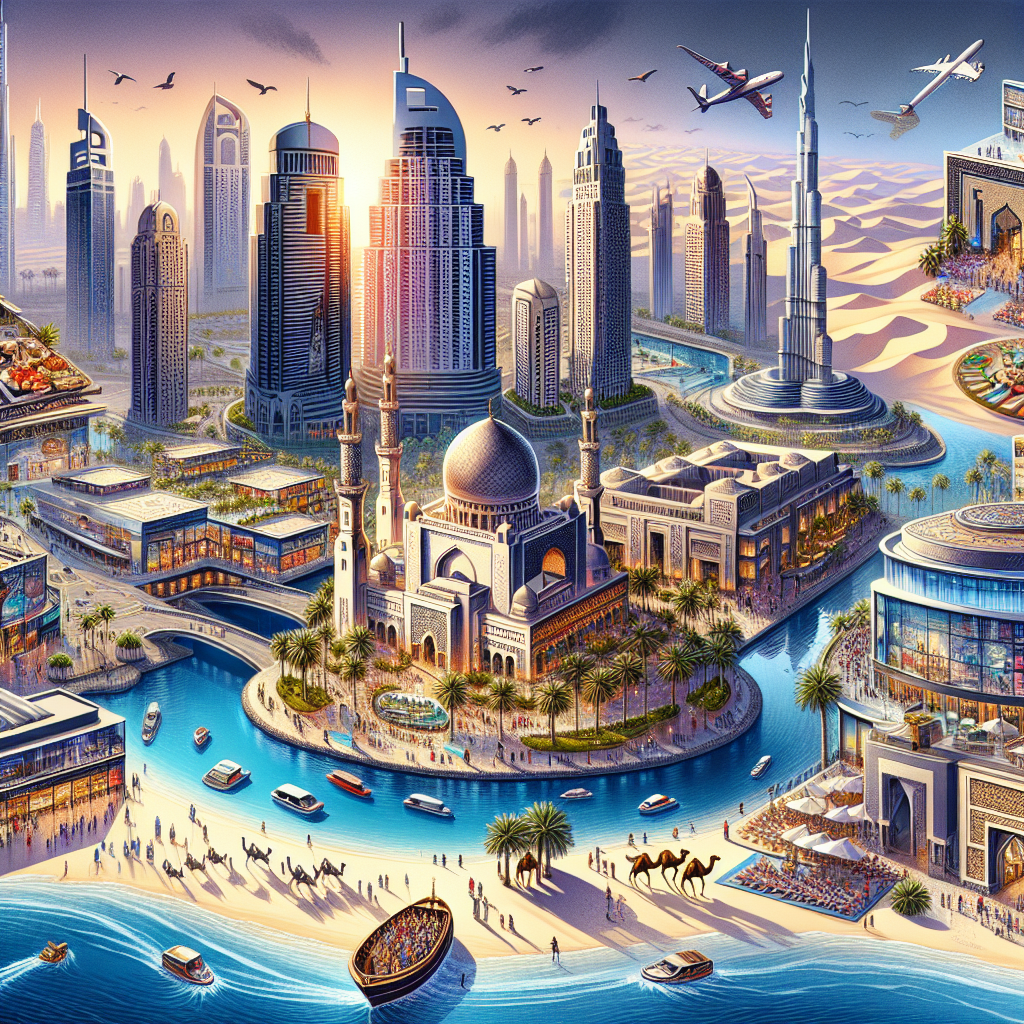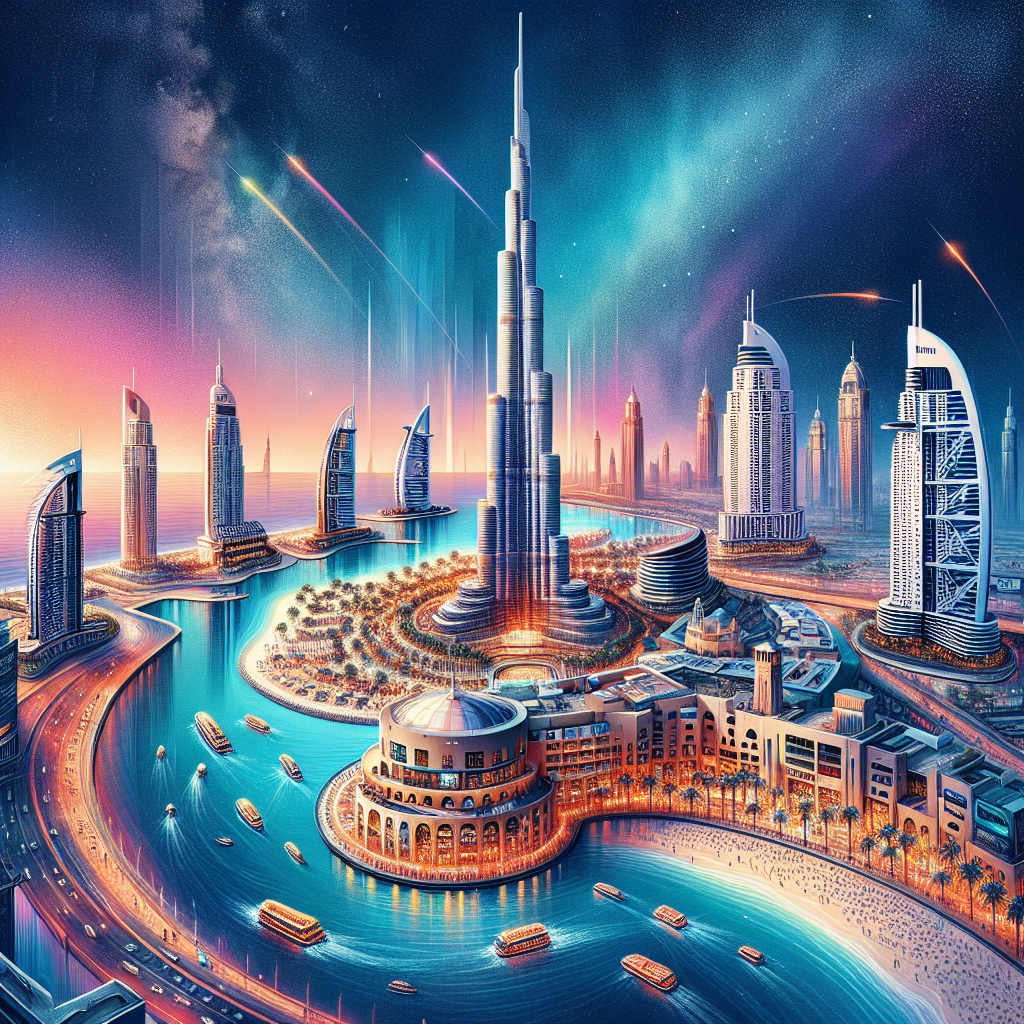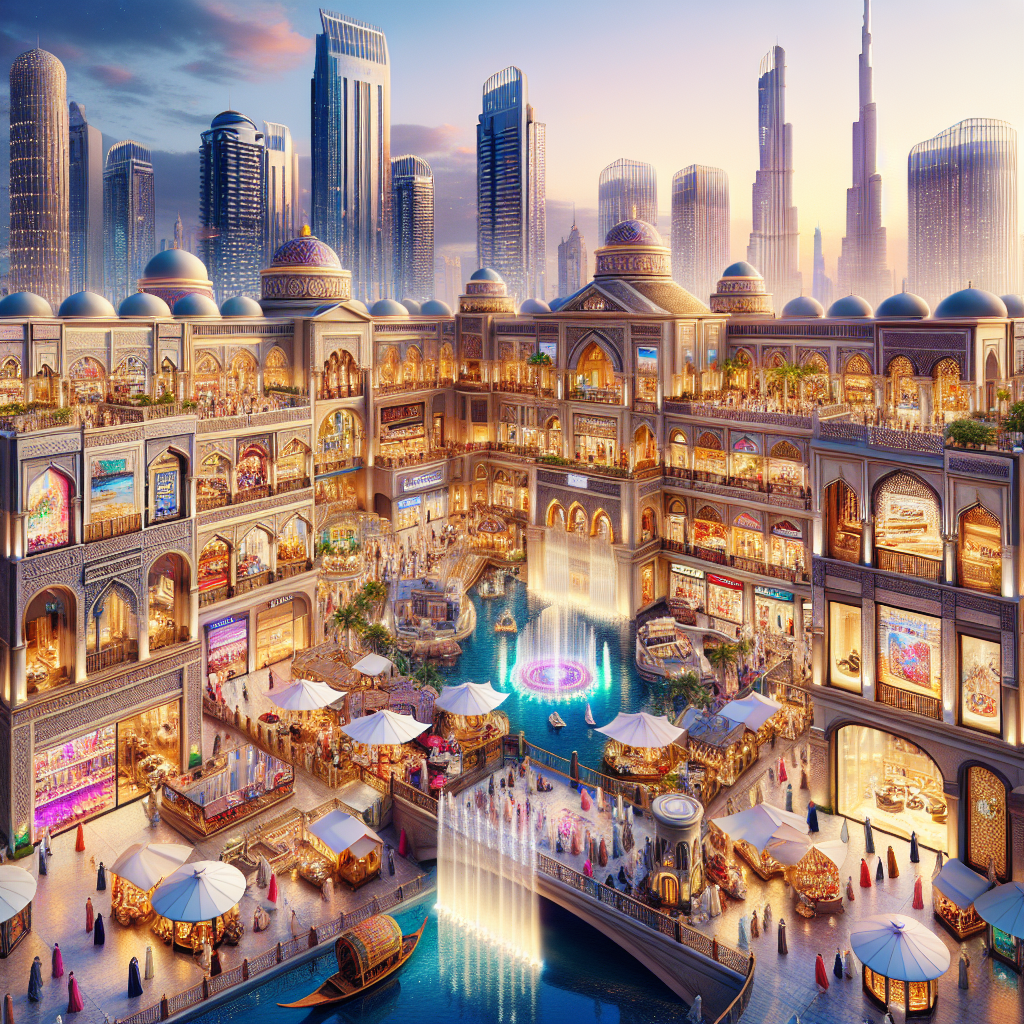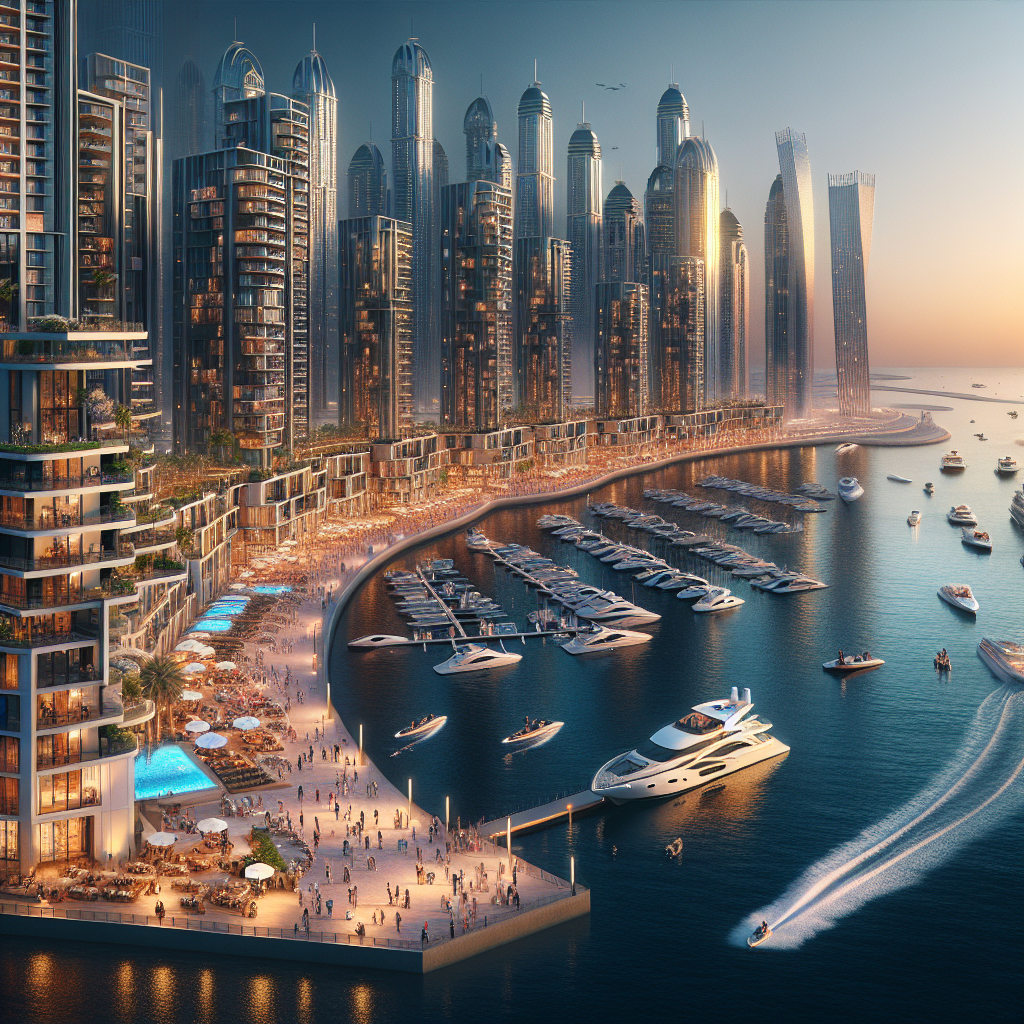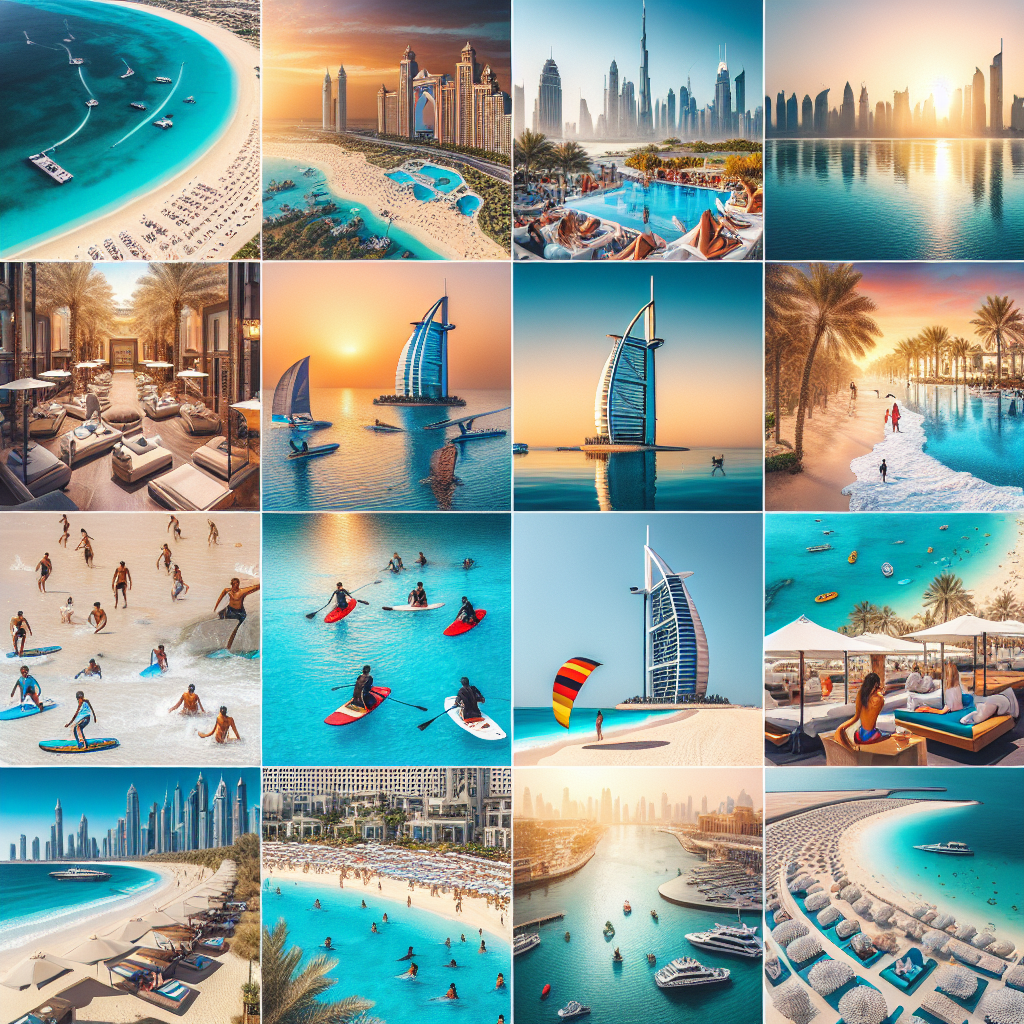Dubai Culture and History
Dubai, a city synonymous with luxury, modern architecture, and exuberant lifestyles, holds much more beneath its glittering surface. A vibrant blend of cultural richness and historical intrigue, Dubai is an enthralling destination for those who wish to delve deeper than the superficial dazzle. In this comprehensive guide, we will explore the cultural attractions and historical sites in Dubai, shedding light on the city’s journey from a modest fishing village to a global metropolis.
The Origins of Dubai
Dubai’s history stretches back over 5,000 years, with archaeological records indicating settlements dating back to the Bronze Age. Initially, Dubai was a small fishing and pearling village situated along the Arabian Gulf. The natural harbor of the Dubai Creek helped to establish Dubai as a modest yet bustling trade hub for merchants and traders from Iran, India, and other neighboring regions.
Despite the harsh desert environment, the people of Dubai thrived by leveraging their strategic position between Europe and Asia. The ancient trade routes facilitated the exchange of goods, ideas, and cultures, making Dubai a melting pot of different civilizations from its early days.
The Influence of Pearl Diving
Pearl diving played a pivotal role in shaping Dubai’s early economy. Divers would venture into the Gulf waters in search of the precious pearls that attracted traders from far and wide. However, the introduction of cultured pearls in the early 20th century led to a decline in the pearl industry, prompting Dubai to seek alternative means of sustenance and growth.
Dubai’s Transformation
The Discovery of Oil
The significant turning point in Dubai’s history came with the discovery of oil in 1966. The oil revenues provided the financial foundation for ambitious development projects. Sheikh Rashid bin Saeed Al Maktoum, Dubai’s visionary leader, utilized the newfound wealth to modernize the city’s infrastructure, laying the groundwork for Dubai’s rapid transformation into a global city.
Modern-day Dubai: A Global Metropolis
Today, Dubai is known for its architectural marvels like the Burj Khalifa, luxury shopping at The Dubai Mall, and artificial islands like Palm Jumeirah. The city’s skyline exemplifies unparalleled urban development, but beneath the modern facades lies a rich tapestry of cultural heritage and history.
Cultural Attractions in Dubai
Al Fahidi Historical Neighborhood
Located along the iconic Dubai Creek, Al Fahidi Historical Neighborhood, also known as Al Bastakiya, offers a glimpse into traditional Emirati life. The narrow, winding alleys are lined with authentic Arabic houses featuring wind towers, a traditional form of air conditioning. Exploring this area, visitors can discover:
- Dubai Museum: Housed in the Al Fahidi Fort, the museum showcases Dubai’s history and heritage through life-sized dioramas and artifacts.
- Sheikh Mohammed Centre for Cultural Understanding: Organized cultural meals, tours, and events promote understanding of Emirati traditions and customs.
- Art Galleries: Various galleries feature works by local and international artists, enriching Dubai’s artistic landscape.
Al Shindagha Museum
Sitting at the northern end of Dubai Creek, Al Shindagha Museum is another must-visit. This expansive museum complex provides insight into the emirate’s historic customs and traditions. Highlights include:
- Perfume House: Displays the history and cultural significance of Arabian perfumery.
- Traditional Crafts: Demonstrations of traditional crafts like weaving and pottery.
- Life in the Creek: Exhibits detailing the lives of the early residents and their relationship with the creek.
Jumeirah Mosque
One of the few mosques in Dubai open to non-Muslims, Jumeirah Mosque is renowned for its stunning architecture. Inspired by the medieval Fatimid tradition, this mosque offers guided tours that educate visitors about Islam and the significance of mosques in Emirati culture.
Historical Sites in Dubai
Dubai Creek
As the lifeblood of ancient Dubai, Dubai Creek stands as a historical site of immense importance. The Creek’s waters were once teeming with fishing boats and pearl divers. Today, a traditional abra ride across the creek offers a nostalgic trip through Dubai’s past. The creek is flanked by:
- Deira: One of Dubai’s oldest commercial districts, brimming with souks, shops, and historic landmarks.
- Bur Dubai: Home to many of the city’s oldest buildings, including the Dubai Museum and the historic Al Fahidi Fort.
Hatta Heritage Village
Nestled in the Hajar Mountains, Hatta Heritage Village offers a stark contrast to the urban environment of Dubai. This restored 16th-century village showcases traditional rural life, complete with stone houses, a fort, and a mosque.
A visit to Hatta Heritage Village often includes exploring:
- Traditional houses: See authentic Emirati homes made from mud, palm leaves, and stone.
- Defense towers: Two watchtowers historically used to protect the village from invaders.
- Hatta Dam: Offering spectacular views and opportunities for kayaking and other recreational activities.
Dhow Wharfage
Located along Dubai Creek in Deira, the Dhow Wharfage is a vibrant testament to Dubai’s trading past. Traditional wooden dhows, many of which have been trading for decades, can be seen here. These seaworthy vessels transported goods between Dubai, India, and other parts of the Middle East long before the advent of modern transportation.
Visitors to the Dhow Wharfage can observe:
- Docked dhows: Watch as goods are loaded and unloaded just as they have been for centuries.
- Market stalls: Nearby markets offer a variety of goods, from spices to textiles, reflecting Dubai’s rich trading history.
Modern Cultural Landmarks
Dubai Opera
A recent addition to Dubai’s cultural milieu, Dubai Opera is located in the heart of Downtown Dubai. Its distinctive dhow-shaped architecture stands as a tribute to Dubai’s maritime heritage. Hosting a range of performances, from operas and ballets to concerts and theatre, Dubai Opera has quickly become a cultural hub.
Featured performances often include:
- Internationally acclaimed operas and ballets
- Local and global musical acts
- Theatre productions and stand-up comedy shows
Alserkal Avenue
For art enthusiasts, Alserkal Avenue in the Al Quoz industrial district is a must-visit. This culturally vibrant creative hub houses numerous contemporary art galleries, studios, and event spaces. Established with the aim of fostering artistic talent and cultural dialogue, Alserkal Avenue has grown to be a focal point of Dubai’s art scene.
Key attractions within Alserkal Avenue include:
- Leila Heller Gallery: Showcasing modern and contemporary art from the Middle East and beyond.
- The Third Line: Promoting contemporary Middle Eastern artists.
- Custot Gallery: Featuring works by international artists.
Global Village
Combining culture, entertainment, and shopping, Global Village offers a rich multicultural experience. Open seasonally, this extensive outdoor venue features pavilions representing over 90 countries, each offering a unique cultural showcase.
Visitors to Global Village can enjoy:
- Cultural performances: Dance, music, and theatre from diverse global cultures.
- Food stalls: A culinary journey through authentic international cuisine.
- Handicrafts and souvenirs: Unique, handmade items from around the world.
Emirati Culture and Traditions
Arabian Hospitality
Hospitality is a cornerstone of Emirati culture. Visitors to Dubai are often struck by the warmth and friendliness of the people. Traditional Arabian hospitality includes the serving of dates and Arabic coffee, known as gahwa, often accompanied by warm welcomes and genuine offers of assistance.
Festivals and Celebrations
Dubai’s cultural calendar is brimming with festivals and celebrations. Some key events include:
- Dubai Shopping Festival: An annual month-long event offering significant discounts, entertainment, and fireworks.
- Dubai Food Festival: Celebrates the city’s culinary diversity with food tastings, events, and celebrity chef appearances.
- Eid al-Fitr and Eid al-Adha: Marking the end of Ramadan and the Hajj pilgrimage, respectively, these celebrations include communal prayers, feasts, and acts of charity.
Traditional Attire
While Dubai is cosmopolitan, traditional Emirati attire remains prevalent and respected. Men wear the kandura, a long white tunic, and women wear the abaya, a black cloak, often paired with the sheila, a headscarf. This attire is not only a symbol of cultural identity but also practical in the hot desert climate.
Cuisine: A Taste of Dubai
Traditional Emirati Dishes
Dubai’s culinary scene is a reflection of its cultural richness. Traditional Emirati cuisine is characterized by bold flavors and hearty ingredients. Must-try dishes include:
- Al Harees: A simple yet delicious dish made from wheat and meat, traditionally slow-cooked.
- Al Machboos: A spicy rice dish with meat (often chicken or lamb) flavored with a blend of local spices.
- Luqaimat: Sweet dumplings drizzled with date syrup, a popular dessert especially during Ramadan.
Modern Fusion and International Cuisine
Dubai’s global expat community has led to a diverse culinary landscape that caters to every palate. Fusion restaurants blend Emirati traditions with international flavors, offered in a myriad of eateries ranging from street food stalls to Michelin-starred establishments.
Some top dining experiences include:
- Pierchic: An overwater dining experience offering fresh seafood with stunning views of the Arabian Gulf.
- Zuma: Renowned for its contemporary Japanese cuisine, providing an elegant dining experience.
- Al Fanar: A destination for experiencing authentic Emirati dishes in a traditional setting.
Experiencing Dubai’s Natural Landscapes
Desert Safaris
No visit to Dubai is complete without a desert safari. The vast Arabian Desert surrounding the city offers a unique connection to Dubai’s Bedouin heritage. Safari packages typically include:
- Dune bashing: Thrilling rides across the sand dunes in 4×4 vehicles.
- Camel riding: Traditional camel rides provide a glimpse into Bedouin transportation.
- Bedouin-style camps: Evening visits featuring traditional music, dance, and cuisine under the starlit sky.
Hatta and the Hajar Mountains
For a contrast to the desert landscape, a trip to Hatta and the Hajar Mountains is ideal. Known for its rugged scenery and cooler climate, Hatta offers opportunities for exploring traditional villages, hiking trails, and wadi (valley) pools. Key activities include:
- Hiking: Trails of varying difficulty levels through the mountains and wadis.
- Kayaking: Enjoy water activities at the picturesque Hatta Dam.
- Historical exploration: Visiting ancient forts and watchtowers immersed in scenic views.
Practical Information for Visitors
Getting to Dubai
Dubai is well-connected with major cities around the world through its two international airports: Dubai International Airport (DXB) and Al Maktoum International Airport (DWC).
For affordable travel plans, you can book cheap flights here.
Accommodation
Dubai offers a wide range of accommodation options to suit all budgets, from opulent resorts to budget-friendly hotels. Popular areas for tourists to stay include:
- Downtown Dubai: Known for luxury hotels and close proximity to landmarks like the Burj Khalifa and The Dubai Mall.
- Jumeirah Beach Residence (JBR): Offers beachfront properties and numerous dining and entertainment options.
- Deira: More affordable accommodations with easy access to traditional markets and Dubai Creek.
Transportation
Getting around Dubai is convenient and modern, with options including:
- Dubai Metro: A clean and efficient way to travel across the city, connecting major landmarks and districts.
- Taxis and ride-sharing: Widely available and relatively affordable, with services like Uber and Careem.
- Abra water taxis: Traditional wooden boats used to cross Dubai Creek, offering a scenic travel experience.
Conclusion
Dubai is a city where the future meets the past. While its skyline is dominated by towering skyscrapers, the echoes of its rich history and culture reverberate through its streets and landmarks. From ancient mosques and forts to modern masterpieces, Dubai offers a wealth of experiences for every traveler. Whether you are exploring historical sites in Dubai or immersing yourself in its cultural attractions, one thing is certain: Dubai will leave you enchanted with its unique blend of old and new.
For the best travel deals, find cheap flights here.



